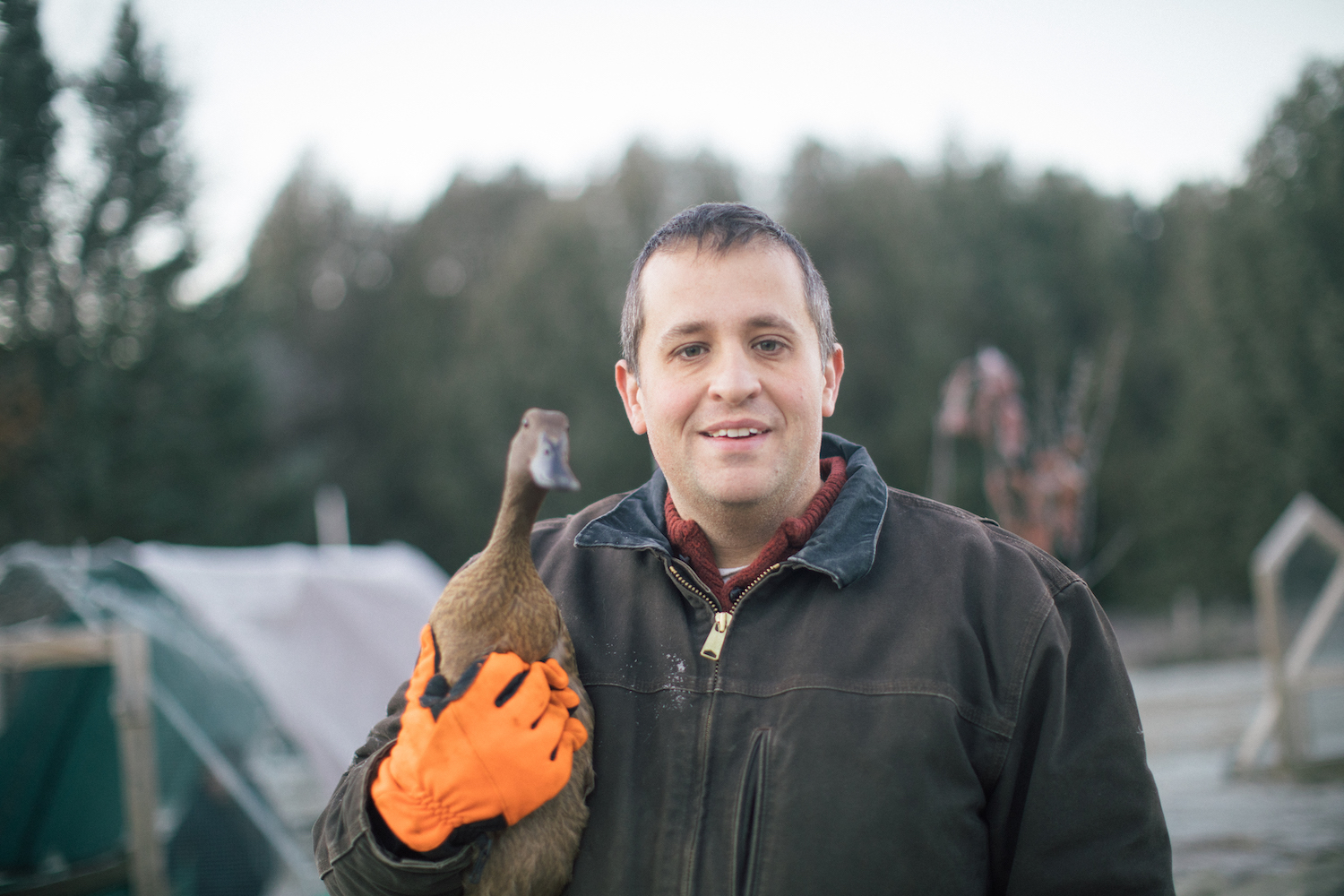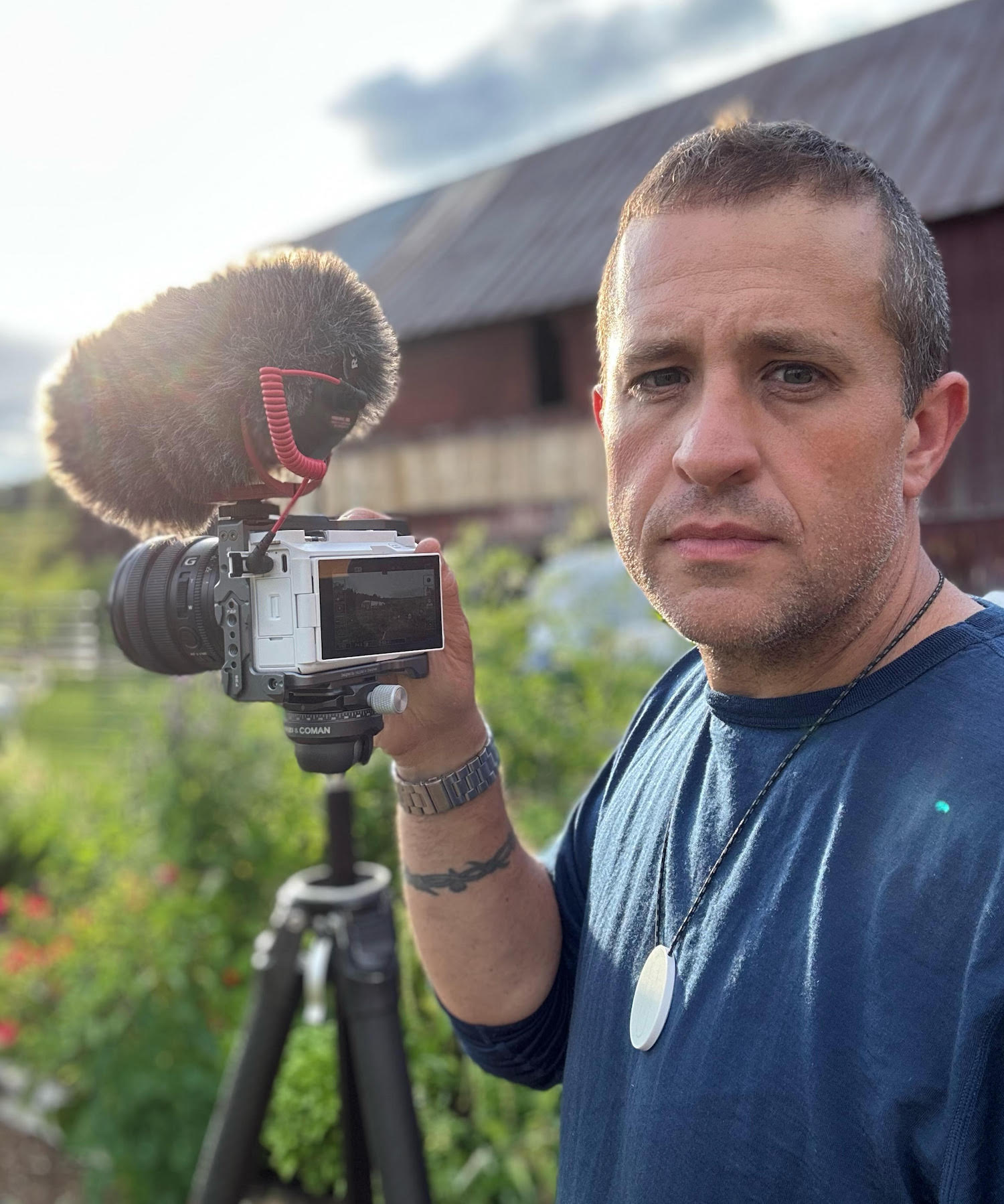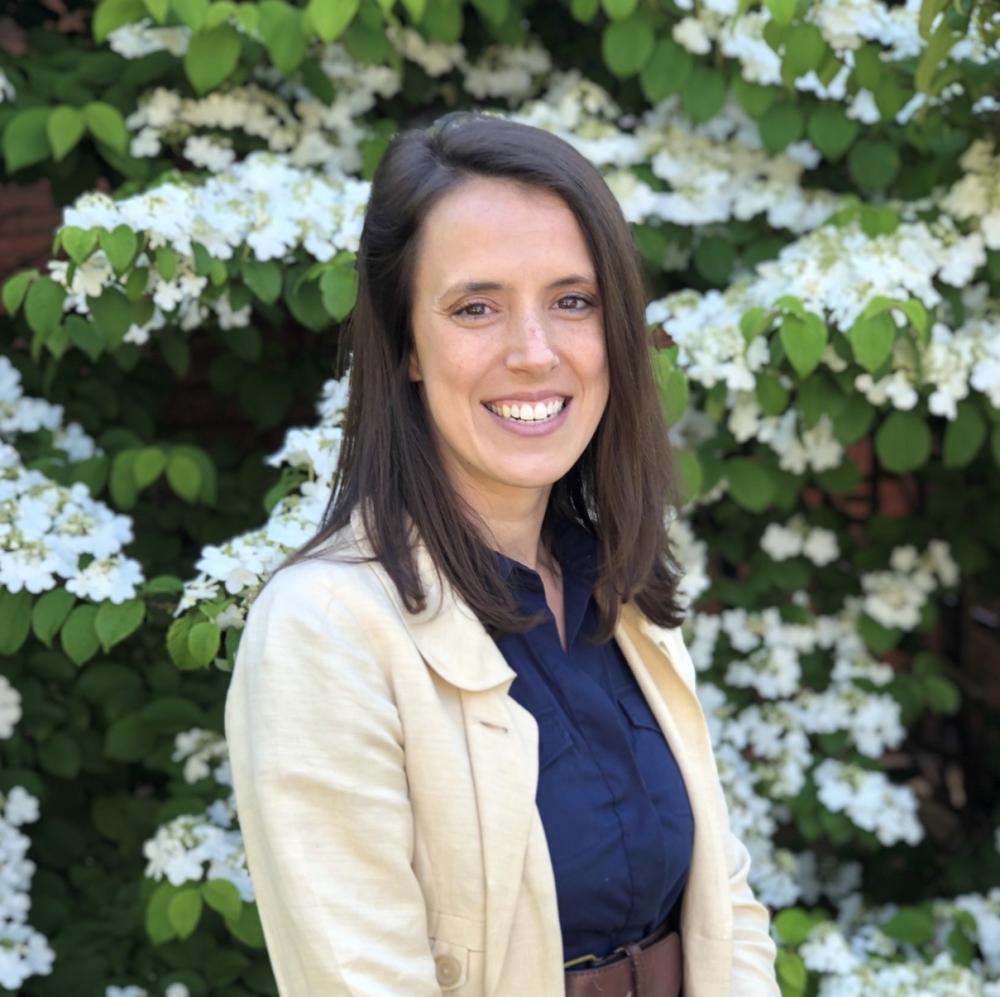
Morgan Gold (right) and Allison Ebrahimi Gold on their farm in Peacham, Vermont.
When recent floods in Vermont broke rainfall records, one farmer used his social media platform to fund emergency disaster grants for neighbors whose crops were destroyed.
As weather patterns become more volatile, the risk for crop loss in the agricultural sector grows. Specialty crop farms — which include small- and mid-sized fruit, vegetable, flower and pastured livestock farms — are in an especially vulnerable position because protections like crop insurance are inaccessible to them.
Morgan Gold owns and operates a duck, goose, cattle and tree farm in northern Vermont called Gold Shaw Farm. He and his wife started farming in 2017 with no prior experience in agriculture, so Gold decided to document their experience of starting a farm on YouTube. His account quickly took off. Today, he has about 4.5 million followers across YouTube, Facebook, Instagram and TikTok.
After the massive flooding in Vermont wreaked havoc on farms across the state last month, Gold hosted a 24-hour livestream to raise funds for the Northeast Organic Farming Association of Vermont (NOFA), an agency that distributes disaster relief funds to farmers.
“Our farm was very lucky,” he said. “We lost 14 or 16 ducklings that lived on pasture with their mothers. But I felt incredibly lucky because friends in the next town over had pastures completely flooded. Market gardeners had their fields wiped out. Because I was lucky and I have a platform, I knew I needed to do something.”

The power of social media
The livestream was broadcast on YouTube and Facebook and featured call-in guests including friends, supporters, subscribers and Vermont's secretary of agriculture, Anson Tebbetts. “I set up webcams around the farm, and I would take my phone with me when I went to pasture to move cattle,” Gold said. “I produced the event while I was on screen.”
Gold encouraged viewers to donate to NOFA Vermont’s Farmer Emergency Fund. “This fund has been established for years, and it seemed the easiest and most direct way to get dollars into the hands of farmers who are in need,” he said.
The stream had over 80,000 viewers and raised $22,000 for the fund with contributions from people all over the world. Gold incentivized donations with creative special offers, such as a live reading of his new children’s book, “Toby Dog of Gold Shaw Farm,” inspired by (you guessed it) the farm's faithful dog. This combination of community engagement, entertainment and incentive drove the success of the fundraising efforts, Gold said.

Small farms can't rely on insurance
NOFA Vermont’s emergency fund is critical for many small- and mid-size farmers in the state, as crop insurance is often not accessible or affordable for specialty crop farms.
“There is a broad perception by the public that when a disaster hits, farmers will get paid out,” Gold said. “The perception is misguided ... When you are in an area like ours, flood insurance isn’t common, and business owner protection is not going to be covered for an event like this. Farmers aren't carrying some magic insurance that covers this, and USDA is not going to come and give everyone a check. Commodity farmers might be in a different camp, but smaller, more diversified farms have a harder path for recouping losses.”
Losses from this summer’s floods were especially difficult for Vermont farmers because mid-summer is typically when sales peak, and money earned in the summer months is critical for supporting their operations year-round.
Reflecting on his ability to raise money for other farmers with his platform, Gold said crowdfunding can help in a crisis, but relying on the financial support of social media viewers is not a viable long-term strategy for funding ongoing operations.
Still, he encourages all farmers to think about their digital strategy. “Building an audience on social media helps build broader relationships, and that’s where real opportunities come in.”
Images courtesy of Morgan Gold

Mary Riddle is the director of sustainability consulting services for Obata. As a former farmer and farm educator, she is passionate about regenerative agriculture and sustainable food systems. She is currently based in Florence, Italy.














